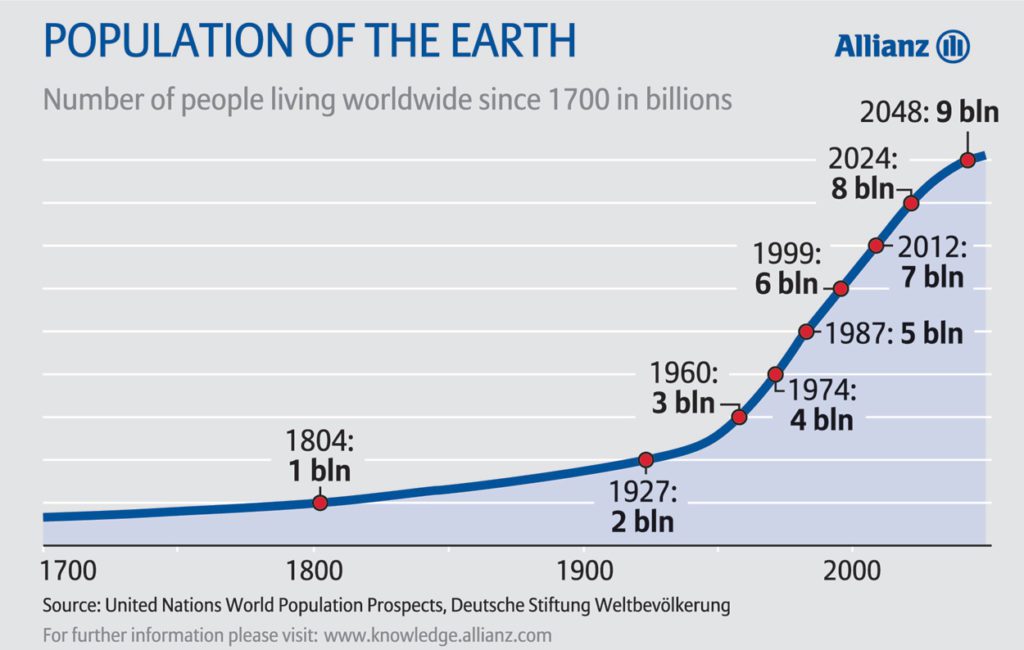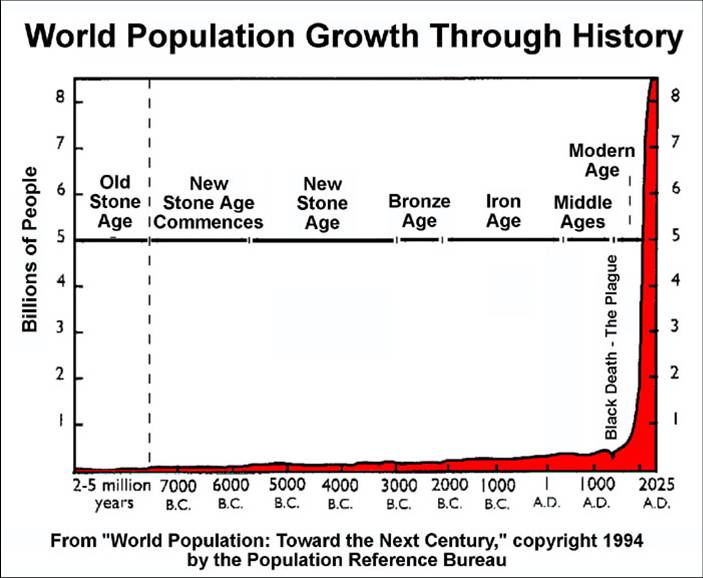A Planetary Disease
Humans have become a planetary disease. Overpopulation is the problem. These are sentiments you may not utter in public without scorn or the shake of a head. As an organism, we have become like cancer on this earth, and while we have our natural place in it, our ego stops us seeing that we are not vital to the planet’s future. Nature is ever resilient and will continue without us.

The natural world has always been about balance and man has constantly pushed back against this environmental equilibrium to ensure his own growth and continued survival. This has been made possible because of his ability to manipulate his surroundings through tools and available resources. Failures and lessons were collectively processed, and the passing on of knowledge to future generations accelerated the collective ability to learn. Had any other species pushed back that balance they would’ve been rendered extinct or forced to migrate to other ecosystems.
Species are forced to self-regulate depending on the availability of resources of their environment. Man has never had the need to self-regulate. That will soon change. Insect swarms and mass bird migrations are kept in balance by predators or lack of resources. We have no predators but ourselves, and our resources are straining under our consumption.
Some of the symptoms of the reproductive juggernaut we are seeing.
- Large scale global poverty
- Territorial conflict and war over resources
- Decline in natural resources (used faster than they can be replenished)
- Habitat and Ecosystem destruction (destroyed faster than it can adapt)
- Increase in mass agriculture (pesticides, soil erosion)
- Lust for constant progress (economists and politics are GDP-obsessed, boom and bust capitalism)
- Climate change through fossil fuel emissions and livestock methane production
- Pollution and massive food waste
- Decline in global wildlife numbers
Short-term solutions
In the popular media, we hardly hear about the decline of an ecosystem because we get overwhelmed by news of war, health, celebrity, religious intolerance and poverty. As a species, we can’t seem to conceptualise that the health of our planet is in decline.
Yes, we see images and documentaries about scientific teams on an ice shelf measuring the thickness and melting, but the decline of the planet does not manifest itself in coffee shops amongst the latte guzzling masses.
All of our earthly problems can be laid at the feet of overpopulation. Everything we try and do to alleviate the above-listed problems are only short-term solutions. Trying to stop Climate Change, save the odd species nearing extinction or feeding the millions of poverty stricken are all short-term measures. It is admirable to keep trying, but they are not planet-saving solutions. Slowing and stopping the rise in population is the only long-term solution.

Graph credit: Allianz
Climate change
With Climate Change, scientists have to provide a solution to a problem before it becomes visible. This is something new to most humans as we have always been at our best when reacting to hardship as they affect us. This will not be the case with our ever-worsening environmental issues because of timescales involved. Perception of time relative to our predicted seventy-year lifespan means we are short-term thinkers.
Talking up all the possible outcomes is foolish because people will not flock to, or believe in, short-term solutions to problems they cannot see. We campaign for beaten and endangered animals because we can see the result of stopping abuse or the species numbers increasing. We cannot see or visualise the effects of Climate Change on our lives let alone get the vast majority to make the changes required to reverse it. Campaigning against overpopulation hits the same issues because we cannot visualise the impacts directly. We have to approach overpopulation differently to the run-of-the-mill campaign strategy
A global debate
A global debate about overpopulation is necessary, but not until everyone participating admits to the main topic. Do we really believe that as a species of this planet, we can continue to innovate and adapt our way out of the bind we find ourselves in? There are people who believe that overpopulation is a myth, and we can solve the issue as we have done with all others issues, using innovation. However, with the limitations of our natural resources already affecting us, I believe that is simply a foolish hope.
Only when we recognise that overpopulation is the overarching problem to all our planetary issues, can we begin to discuss solutions. These solutions will always be divisive because they will curtail an individual’s “selfish rights” – religious, personal or human. All man-made rights that need to be readjusted and redefined. It’s the right of the individual vs. rights of the future population. This is a reason so many short-term elected politicians are failing to address the rapid increase of people.

Population through the Ages. Credit: Population Reference Bureau
“We cannot confront the massive challenges of poverty, hunger, disease and environmental destruction unless we address the issues of population and reproductive health.” – Theraya Ahmed Olaid, UN, under Secretary General.
Our will to survive and procreate is what is driving all problems on this planet. We have to feed, house and educate a rapidly growing swarm of people, with dwindling resources. Our population is growing faster than the ability of the planet to adapt. She can adjust but needs a generation or two of respite to do so. There is not a single issue on this planet that solution requires us to keep producing offspring at the increasing rate we are doing.

Years Elapsed between Billions of People
So what is the solution?
- Education and the empowerment of women on the planet are the most important steps to slowing overpopulation.
- Early education about the effects of overpopulation in our schools and colleges
- Education of our religious leaders who continue to promote dogmas and religious beliefs against contraception.
- If all of that fails to slow the rising numbers – enforced population control through legislation e.g. tax breaks for small families, further tax breaks for childless married couples. We should be rewarding those who choose not to procreate more than those decide to have more children.
- If none of that works then enforced childbirth limits need to be implemented as they did in China. I doubt it would ever get to that. We will either have solved the issue or be on a chronic downward spiral towards extinction (Global starvation and war).
“Only in the field of general breeding limitation are we now coming face-to-face with the first major assault on our age-old sexual system by the forces of modern civilisation. Thanks to medical science, surgery and hygiene, we have reached an incredible peak of breeding success. We have practised death control, and now we must balance that off with birth control. It looks very much as though during the next century or so, we are going to have to change our sexual ways at last.” – Desmond Morris, The Naked Ape. First published in 1967
A known problem
Let me repeat that last sentence again. “First published in 1967”. We have known about this problem for nearly 50 years. There are 90-year-olds, still in good health, who called this planet home when there were just 2 billion of us. The calculated optimum population rate has been shrinking as we consume the resources mother earth has to offer. It was up over 3 billion but is shrinking back to 2 billion. Something has to give before we destroy our species and many around us. It’s called population overshoot, and we are in the middle of it.
Sites with valuable overpopulation details:









[…] so many areas would change dramatically. Decreasing food production would cause suffering for the massively increasing global population (cue more poverty). Resources of gas, oil, water and the other rare earth elements which are […]
[…] so many areas would change dramatically. Decreasing food production would cause suffering for the massively increasing global population (cue more poverty). Resources of gas, oil, water and the other rare earth elements which are […]
[…] this planet is the only way forward, and this means drastically shrinking our ecological footprint. Our overpopulated planet is already in overshoot, and we can only limit the rapacious appetite for growth by shrinking our […]